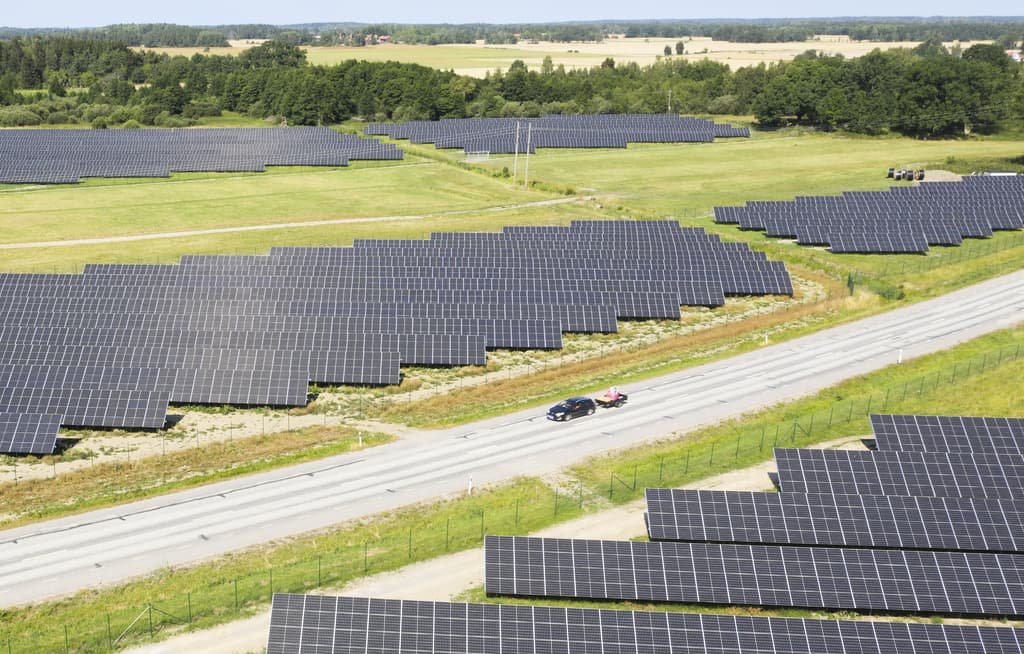It's going better with the green transition than many Swedes think. This is shown by a new survey from Fossil-Free Sweden.
Swedes have more knowledge about the planet's problems than the opportunities to solve them. It's going better than many think, says Svante Axelsson, national coordinator.
The EU's greenhouse gas emissions are increasing. At least, that's what three out of four Swedes believe, according to a Novus survey commissioned by Fossil-Free Sweden. In reality, territorial emissions have decreased by 30 per cent between 1990 and 2021.
Fossil-Free Sweden's national coordinator Svante Axelsson believes there is a risk that people will lose faith in the future.
I'm extremely worried that people's hopelessness will increase and then we'll lose the momentum of the entire transition.
Fossil-Free Sweden wants to highlight the successes achieved and reduce the knowledge gap. If people find out that things are going in the right direction and that opportunities exist, they can increase the pace – and then politics can also raise its ambitions, Axelsson believes.
The planet is doing extremely badly. We have a very serious situation, and it's never been this bad on Earth. If people give up, we won't get the change that's really needed and is possible.
Industry is impatient
Global emissions continue to rise. Nine out of ten Swedes believe that the International Energy Agency (IEA) predicts that global emissions from fossil fuels will start decreasing only after 2035. In reality, the IEA believes this will happen by 2025 at the latest.
Ten years ago, industries were a brake, according to Axelsson. But now, businesses want to move faster than politics and are very impatient.
Industry says "we can and we want", but that better conditions need to be created. They're losing competitiveness and want to invest in fossil-free technology. They think it's going too slowly.
The technology is here
There are all the prerequisites for the transition, Axelsson believes. Now, for example, batteries for electric cars and solar and wind power are much cheaper than before. Despite this, the survey shows that Swedes believe it's costing an arm and a leg.
The price of batteries for electric cars, for example, has fallen by 90 per cent since 2010. And while eight out of ten in the survey believe that every fourth or every other bus in public transport runs fossil-free, in reality, 95 per cent of buses do.
With that said, Fossil-Free Sweden absolutely does not want to signal that it's okay to take it easy.
Because it looks very tough, we don't have many years left. We want to create courage and strength, now we must increase the pace, says Axelsson.
Fossil-Free Sweden was launched on the initiative of the government in 2015 ahead of the UN climate meeting in Paris.
It brings together companies, municipalities, regions, and organisations that support the declaration to make Sweden one of the world's first fossil-free welfare countries.
Fossil-Free Sweden works to increase the pace of the climate transition. The goal is to build a strong industry and create more jobs and export opportunities.
Source: Fossil-Free Sweden






